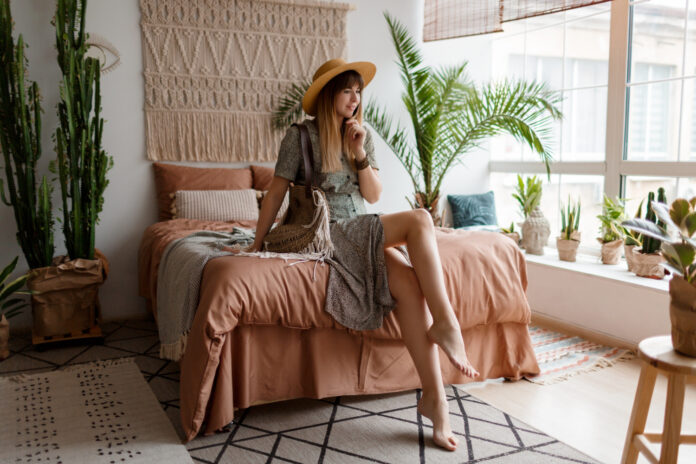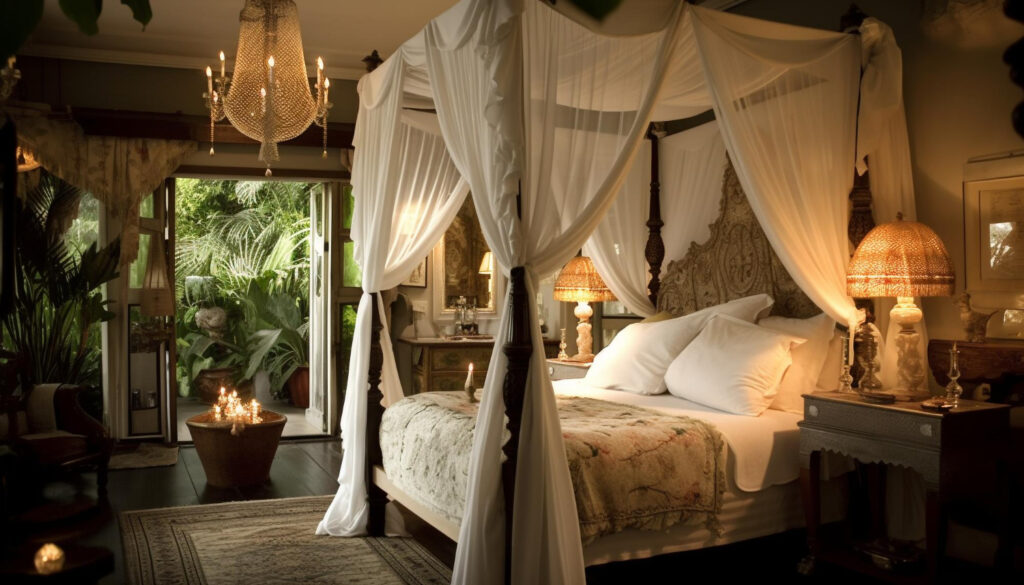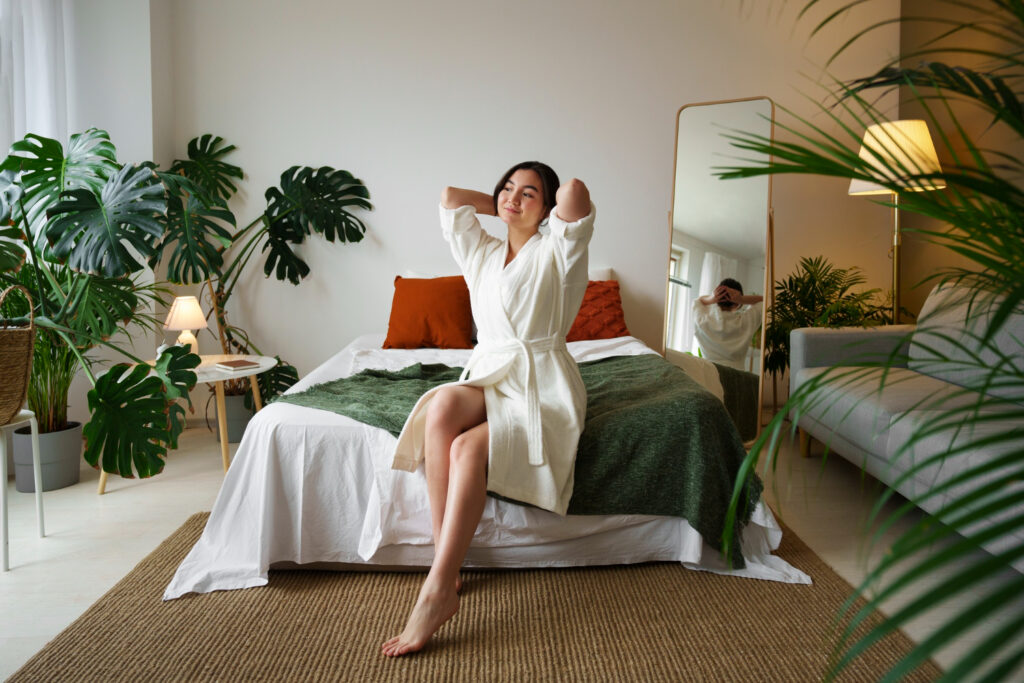
The bedroom should be more than just a place for sleep. For many, the bedroom is the last space we visit at the end of a long day and the first when a new one begins.
Consequently, the atmosphere within it can have a profound impact on our mental well-being and overall life quality. To help you create relaxing master bedroom retreat ideas, here are seven detailed tips to help you transform your bedroom.
Choose the Right Color Palette
The colors you surround yourself with play an important role in establishing the mood of a space. For a calming, serene bedroom, soft and muted colors are generally the most effective. Consider pale blues and greens, which are often associated with peace and tranquility, or opt for soothing neutrals such as soft beiges, taupes, or greys.
Avoid using too many bold or vibrant colors, as these can stimulate the senses and create an energizing environment rather than a relaxing one. Instead, reserve these lively hues for spaces in your home that require motivation and creativity, like the home office or workout space. Remember, the goal of the bedroom is to evoke a sense of calm and relaxation, not stimulation.

Prioritize Comfort
Your bed is the centerpiece of the bedroom, and as such, special attention should be given to it. Investing in a high-quality mattress tailored to your sleeping style can significantly improve your sleep quality.
Just as important are your pillows and bed linens. Opt for pillows that provide ample support, and select fabrics for your linens that feel good against your skin. Breathable materials like cotton or linen are excellent choices due to their softness and temperature-regulating properties. Also, try to include a variety of textures to create a cozy, layered look. Consider soft quilts, fluffy throw blankets, and plush pillows.
Reduce Clutter
When your space is messy, it can often make your thoughts feel jumbled up too. If you want to maintain a sense of peace in your bedroom, keep clutter to a minimum. Adopt practical storage solutions to keep your items organized and out of sight. Consider under-bed storage, closet organizers, or even a bed frame with built-in drawers.
If you dedicate at least a few minutes each day to tidying up, you’ll be able to maintain a serene environment. However, remember to balance functionality with aesthetics. Your storage solutions should blend seamlessly with your decor to maintain the calming vibe of your room.
Use Ambient Lighting
The right lighting can have a profound impact on the ambiance of a room. In bedrooms, harsh overhead lights are often too stimulating. Instead, consider layered lighting options. Table lamps, floor lamps, sconces, and string lights can all be used to create a warm, cozy glow in your room.
Consider lamps with dimmer switches to give you control over the light intensity and create an intimate, tranquil atmosphere. And for early risers or afternoon nappers, blackout curtains or blinds can help to darken the room and enhance your sleep quality.
Incorporate Natural Elements in Your Bedroom Retreat
Incorporating elements of nature into your bedroom retreat decor can significantly enhance its peaceful ambiance. Indoor plants are a fantastic option as they not only beautify your space but also improve air quality. Opt for low-maintenance species such as snake plants, spider plants, or pothos.

In addition, consider incorporating natural materials into your decor. Wood, stone, bamboo, or wicker can all bring a touch of nature into your space and help to create a soothing environment. Even elements like artwork featuring landscapes or nature sounds can contribute to this calming effect.
Use Relaxing Scents in Your Bedroom Retreat
Our sense of smell has a powerful influence on our mood and emotional well-being. Utilizing this can be a game-changer when creating a calming bedroom retreat. Aromatherapy, the use of natural oils extracted from flowers, leaves, and other plant parts, can significantly enhance your space’s relaxing qualities.
Scents like lavender, chamomile, or jasmine are renowned for their calming properties. Use an essential oil diffuser, scented candles, or room sprays to subtly imbue your room with these relaxing fragrances. As you get into bed each night, these familiar scents can serve as a signal to your brain that it’s time to wind down and sleep.
Keep Technology at Bay
In our interconnected world, it’s often challenging to disconnect. But the bedroom should ideally be a technology-free zone. Electronic devices, particularly screens, emit blue light, which can interfere with your body’s natural sleep-wake cycle and inhibit the production of sleep-inducing melatonin.
Try to avoid having a television, computer, or other electronic devices in your bedroom. If you must use your phone or tablet, consider blue light-blocking glasses or enabling night mode on your devices. Even better, replace electronic devices with books or other non-screen relaxation tools.



